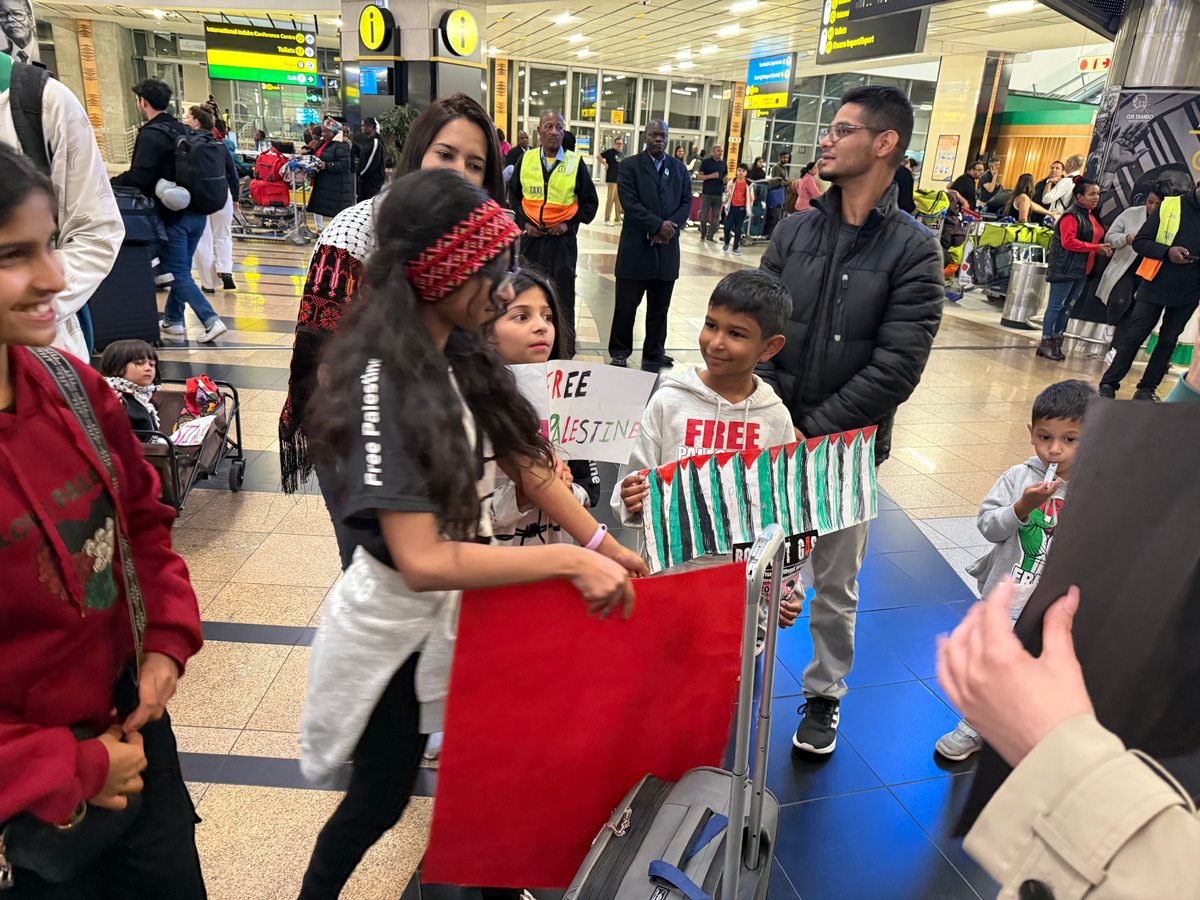Update Solidarity
April 29, 2025 · 4 min reading
GSC in South Africa, and updates from the the US
Over the last month, members of the Good Shepherd Collective have travelled across California, Florida, Michigan, Pennsylvania, and New York. In this short period, we held over 25 public and private meetings with organizations, community support groups, small activist formations, and student organizers to discuss our experiences, share our insight, and learn from others’ hard-earned wisdom as well.

Cody O'Rourke
cody@goodshepherdcollective.org

We are in South Africa for a week of events across the country in time for the International Week of Solidarity with Palestine. We had a grand welcome that really warmed our hearts, filled with hugs, chants, and homemade signs calling for a free Palestine. As we prepare to travel throughout the country, I wanted to provide a brief update and share a few insights that have emerged over the last two months we’ve spent in the United States.
Over the last month, members of the Good Shepherd Collective have travelled across California, Florida, Michigan, Pennsylvania, and New York. In this short period, we held over 25 public and private meetings with organizations, community support groups, small activist formations, and student organizers to discuss our experiences, share our insight, and learn from others’ hard-earned wisdom as well. It was illuminating and constructive. And while we haven’t fully debriefed or decompressed, a few themes have emerged.
-
Movement spaces, ranging from liberal to even slightly conservative, are openly acknowledging that the Democratic Party is not the solution. People understand that something entirely new has to be built, but they also understand that this is a monumental task. As a result, old leadership and establishment organizations are selling praxis of reform — which is creating tensions and fissures that will define what solidarity looks like in the years to come.
-
The US-based national NGOs have not met the moment. Many of the groups with which we met were openly disgruntled and frustrated with the way the most well-funded (reportedly, “Palestine solidarity”) NGOs refused to challenge the Democratic Party as an institution financing, propagandizing for, Israel’s genocide. Instead, they took the approach of criticizing a few of the socially acceptable personalities, like Chuck Schumer, for example. Local organizers argued that national NGOs refusing to make a call to withhold material resources from the party financing and animating a genocide was detrimental to the work, and left the average person with no structural support to facilitate accountability. These organizers felt that many national NGOs were too reliant on a donor community that also financed the Democratic Party, citing a conflict of interest in the national NGOs' funding streams.
-
People are willing to talk about and confront capitalism. More people are understanding that much of the violence people experience on a daily basis is rooted in the inequalities that are inherent to monopoly capitalism and that the logical outworkings of capitalism is in fact imperialism and endless war.
-
There is a deep need for political education — not just the memorization of historical events or data points (like how many people Israel has killed). People want to invest in political theory to understand “why” historical events happened or why more homes are being demolished. Whether we are talking about what zionism is, how to resist it, or how capitalism and imperialism play an essential role in maintaining the colonization of Palestine, there is an urgent need for shared understandings of these systems. Without these, we will continue to run campaigns that do not serve the people who most urgently need our solidarity. With the genocide in Gaza now in its 571 day, this has long been overdue. It can feel overwhelming, but together we can do it.
We’ll be providing a longer analysis on each of these points over the next few months. But make sure to follow us on social media for updates on the work being done in South Africa.
Lastly, take the time to listen to this podcast and interview with comrade Calla Walsh, which unpacks the tactical and theoretical implications of the organizing tactics within movements of solidarity.
A reminder, the Good Shepherd Collective is only able to do this work because of individuals such as yourself who are willing to donate a little bit each month. If you can, consider donating $ 10, $ 20, or $ 30 a month to help us expand this work.
In solidarity, Cody
Support
The Good Shepherd Collective rejects the model of large grants from liberal institutions because of the ways it can shape the work. Instead, we premise our work in the financial investments from individuals who believe in the future we're trying to build. Consider becoming a monthly donor.
Donate